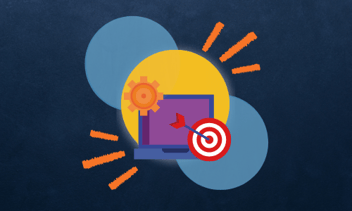
Leads are the fuel that allows your business to keep moving forward. It’s important not only to get a sufficient number of leads but also to obtain quality leads. To do this, you need to understand the personas of your customers and what they value at different stages of their buyers’ journey.
Who are your ideal customers?
Any effective marketing strategy requires you to understand your audience. If you haven’t already done so, spend some time considering to whom, exactly, you want to speak in each piece of marketing content that you create. Write your content and build your online offers with specific buyer personas in mind, and tailor these pieces to their interests, needs, desires, business pains, personal challenges, or other relevant individual traits.
Most likely, you will come up with multiple personas for your ideal customers. These will enable you to create different types of offers that appeal to different segments of your audience.
What do they value in different stages of their buyer’s journey?
The most common call to action on business websites is the generic “contact us.” While this is perfectly appropriate for visitors who are ready to buy, it’s not particularly appealing to those who are still in the process of gathering information and researching their options. These, however, are precisely the people you want to capture as leads for your marketing efforts.
Awareness Stage
For those who are not quite ready to buy, you will want to offer something of value in exchange for some basic contact information so you can begin building a relationship. Those who are still in the process of gaining awareness of what type of product or service could benefit them value information to help them do that. Offer educational materials, such as infographics, eBooks, guides, or videos that are informative and easy to digest. This will help you to build trust with those who are just beginning the buyer’s journey, increasing the likelihood that they will come back to you when they’re ready to move forward.
Consideration Stage
After potential customers develop a basic idea of what kinds of solutions they’re considering, they are ready for more in-depth information to help them compare possible alternatives. Ebooks, guides, and videos can also be valuable here. Depending on your specific type of business, other formats can also be effective. White papers, for example, can deliver complex information in a more formal, analytical format; they have a very polished and professional feel. Think about your own business and what your buyers need to know before they decide to purchase a product or service like yours.
Decision Stage
After a potential customer knows what he or she wants, the last step is to decide where to obtain it. For those in this stage, you want to provide reasons to choose your company over your competitors.
- Case studies are a great way for you to illustrate for potential customers how you can benefit someone like them. Brag about how you’ve helped those you’ve already served!
- Coupons are great for getting retail customers engaged with a company. Make your coupon offers enticing enough to spur action, but be careful not to give away the store to freebie seekers who are unlikely to return with money to spend.
- Free trial periods allow your prospects to experience what you can do for them before they buy. This can be a powerful enticement for some businesses.
- A webinar can give potential customers the experience of working personally with someone on your staff and benefitting directly from your expertise.
Once you have crafted offers for all stages of the buyer’s journey, utilize calls to action and landing pages to capture leads that you can then begin nurture into eventual buyers with additional information and offers. Check out our blog post on marketing automation to learn about specific lead-nurturing tools!



